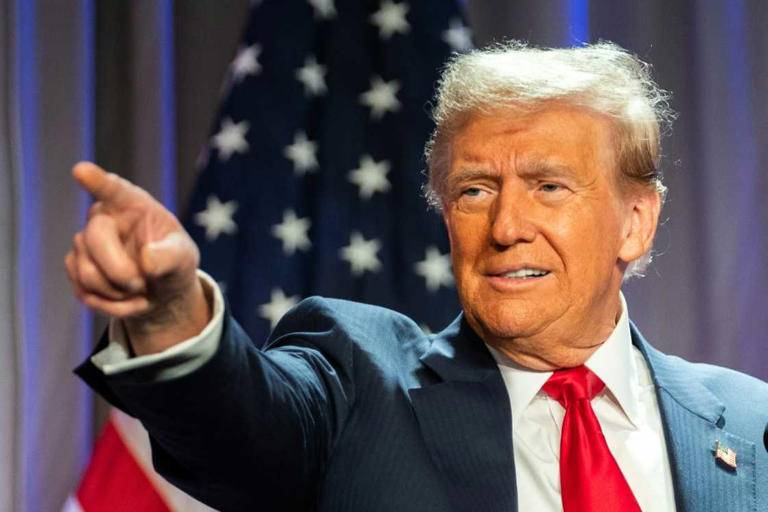Trump Pledges to Protect Dollar Dominance Amid Rising Challenges
US President-elect Donald Trump has issued a stark warning against governments that challenge the dominance of the US dollar, threatening “100 percent tariffs†on countries that attempt to undermine its position. His comments, posted on Truth Social, specifically targeted nations that advocate for a new BRICS currency or seek to replace the dollar. The BRICS bloc, consisting of Brazil, Russia, India, China, and South Africa, recently expanded to include Iran, Egypt, Ethiopia, and the UAE, prompting discussions about reducing reliance on the US dollar.
Despite Trump’s rhetoric, the greenback’s hegemony remains largely unchallenged. The US dollar accounts for 58% of global foreign exchange reserves, down from 67% in 2000 but still far ahead of other currencies, according to the International Monetary Fund (IMF). It dominates international trade, comprising 74% of export invoices in the Asia-Pacific region, the world’s busiest trading hub. The dollar’s role as the primary reserve currency has been entrenched since the 1944 Bretton Woods agreement, which established the IMF and pegged global currencies to the US dollar.
Experts argue that the dollar’s dominance is underpinned by the US’s massive economic influence, its $8 trillion in foreign-held government debt, and its unmatched role in global monetary policy. Even during crises, such as the 2008 financial meltdown, the dollar’s status as a safe haven has remained intact. Eswar Prasad, a Cornell University professor, notes that the global economy relies heavily on the dollar to sustain multilateral trade and maintain efficiency.
Trump’s remarks follow an October BRICS summit in Kazan, Russia, where members explored increasing non-dollar transactions. While countries like China and Russia have engaged in bilateral trade using local currencies, a unified BRICS currency remains unlikely due to member nations’ reluctance to cede monetary sovereignty. Adam Button, and ForexLive analyst, describes the idea of a BRICS currency as “fringe,†with little practical feasibility.
The dollar’s dominance also provides the US with significant leverage in global geopolitics, such as imposing sanctions or freezing foreign reserves. Critics, however, view Trump’s threats as bluster with limited impact. Jonathan Kirshner, a political scientist at Boston College, argues that international currencies succeed because users trust and choose them voluntarily. Coercion, he warns, could erode confidence and ultimately backfire.



No comments yet
Be the first to share your thoughts!